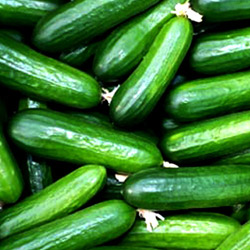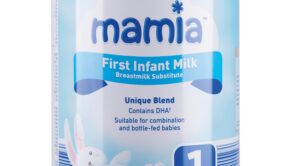Irish retailers take action over E.coli outbreak

FSAI confirms that some Irish retailers have withdrawn organic cucumbers from shelves due to the E.coli strain, although the group doesn't believe the deadly bacteria has reached Ireland
31 May 2011

An E.coli outbreak in Europe which has claimed the lives of 16 people was thought to be due to consuming infected organic cucumbers originating in Spain.
However the German authorities are now saying that no food source has been identified as the definitive source of the outbreak.
The Food Safety Authority of Ireland (FSAI) states that the German authorities are continuing their investigation into the ongoing outbreak of Verotoxigenic E. coli (VTEC). Reports from Germany have found VTEC on Spanish cucumbers, but a direct link to the outbreak strain has not been confirmed to date.
The Food Safety Authority of Ireland (FSAI) believes that none of the produce has reached the Irish market.
Jane Ryder, FSAI communications manager told ShelfLife that there have been no reports of E.coli cases here but it was continuing to liaise with the European Commission on the matter.
However the FSAI has confirmed that SuperValu, Dunnes Stores and Lidl have withdrawn certain batches of Spanish organic cucumbers from shelves, although it said this was on trade grounds only and not as a food safety measure. The FSAI has said that these cucumbers were not from the two suppliers in Spain that were previously named by the German authorities.
Prof Alan Reilly, chief executive, FSAI said: "We have no information from the European Commission to indicate that that any organic cucumbers from the implicated suppliers in Spain were distributed to Ireland. The action taken by some retailers was not requested by the FSAI, but was undertaken by the retailers themselves. It is important to note that there have been no reported cases of human illness in Ireland associated with the German outbreak strain of E. coli. Consumers do not need to be concerned."
Superquinn has released a statement to say that all its cucumbers are 100% Irish and Bord Bia approved. All Superquinn cucumbers are grown in north county Dublin by Vincent Thorne and they say they have not sold Spanish cucumbers in over six weeks.
Musgrave made the decision to pull 20 cases of organic cucumbers from its shelves last week. Head of communications for Musgrave, Sue Lamon-Diver told ShelfLife that the move had been made as an extreme precaution.
When we contacted Aldi, we were told that the discounter did not stock organic cucumbers and that all the cucumbers it does sell comes from Ireland and Holland.
A statement from Lidl said that its produce was not affected from the outbreak. "Lidl Ireland can confirm that it has not been affected in any way by any of the products you refer to in your enquiry. As always Lidl is working closely with the Food Safety Authority of Ireland on this matter."
There are now 16 people confirmed dead from the E.coli outbreak and the first death outside of Germany was reported in Sweden. A Swedish woman in her 50s died after coming back from a trip to Germany.
In Germany, the national disease control centre, The Robert Koch Institute, confirmed that 373 people were sick with the most serious form of the outbreak – hemolytic uremic syndrome, or HUS, a rare complication arising from an infection most commonly associated with E.coli.
A spokesperson for the Institute said another 796 people have been affected by the E.coli, also known as EHEC, bacteria – making a total of more than 1,150 people infected.
German authorities are still warning consumers to avoid all cucumbers, lettuces and raw tomatoes as the outbreak is investigated.
Spanish authorities have criticised the German response and a Spanish official from Andalusia ate a cucumber on television , to dispel the fear of Spanish produce.
Spain is Germany’s second largest supplier of cucumbers within the European Union, accounting for some 40 percent of the country’s cucumber imports.
Russia has taken the step of banning imports of cucumbers, tomatoes and salad from Spain and Germany for the time being. It said in a statement that it may even ban the imports of fresh vegetables from all European Union member states due to the lack of information about the source of infection.



 Print
Print






Fans 0
Followers